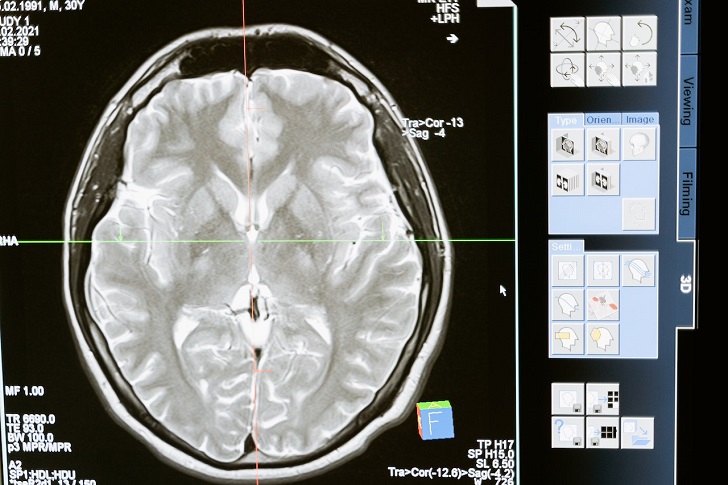Numerology, a captivating ancient study centered around numbers and their profound influence on our lives, opens the door to a world of mysteries and revelations. It delves deep into the essence of numbers, exposing their vibrational frequencies and uncovering their remarkable impacts on our personalities, relationships, and destinies.
As we embark on this intriguing journey, let's explore the history of numerology, its basic principles, the science behind it (or lack thereof), and its fascinating applications across various fields.
History of Numerology
The adventure begins with a stroll through the annals of history. Despite its ancient origins, numerology transcends borders, captivating cultures across the globe. The Babylonians, Pythagoreans, and the Chinese, among others, all sought to unveil the profound significance of numbers beyond mere counting. In their own unique ways, these cultures uncovered the hidden facets of numbers, weaving them into the fabric of daily life, spiritual practices, and core beliefs.
Numbers were living entities for these civilizations, brimming with energy, influence, and meaning. They weren't just tools for quantification; instead, they offered deep insights into existence, the cosmos, and the intricate threads of life itself. Numerology emerged as a profound path toward comprehending the unseen vibrations that numbers emit and their substantial impact on the external world and our inner selves.
The Basic Principles of Numerology
As we delve deeper into numerology, we encounter its fundamental elements. Life Path Numbers, Destiny Numbers, and Soul Numbers emerge as key players, each shedding light on unique aspects of individual personality traits, life challenges, and potential life trajectories. Calculating these significant numbers involves intricate processes, each layer peeling back to reveal a world with insights and enlightenment.

Andrea Piacquadio/ Pexels | The beauty of numerology lies in its ability to unveil the profound connections between numbers and our existence
Every number from one to nine, as well as the master numbers 11, 22, and 33, possesses unique vibrations. These energies reflect diverse facets of human life, molding personalities, guiding decisions, and charting the course of personal and professional journeys. Understanding these vibrations and how they intertwine with individual lives forms the bedrock of numerological exploration.
The Vibrations of Numbers
In the realm of numerology, numbers are far from static entities. Instead, they pulse with an unseen energy, each carrying a distinct vibration. This energetic resonance impacts various aspects of life, infusing our existence with unique tones and frequencies. For instance, the number one might resonate with leadership and independence, while two is more aligned with partnership and harmony.
Exploring the vibrational world of each number unlocks captivating insights into human characteristics and life paths. Recognizing these underlying frequencies offers a clearer understanding of personal attributes, challenges, and strengths, fostering heightened self-awareness and personal growth. The energetic resonance of numbers plays a pivotal role in shaping life paths, guiding individuals toward fulfillment and understanding.
The Science Behind Numerology: Is There Any?
As our expedition advances, a fundamental question looms: what scientific foundation does numerology stand upon? Research and studies reveal a divided scientific community regarding numerology's credibility. Opinions span from outright skepticism to tentative acceptance of certain fundamental concepts.
While numerology aligns with certain mathematical principles and theories, establishing a direct scientific correlation remains a complex endeavor. Critics highlight the lack of empirical evidence and the subjective interpretation of numbers, raising questions about the objectivity and reliability of numerological analyses.
Nonetheless, numerology continues to thrive, showcasing its enduring appeal and humanity's unceasing quest for meaning within numbers and patterns.

MART PRODUCTION/ Pexels | Numbers are like musical notes; they compose the symphony of our lives
The Mathematical Aspect
Beyond the realm of vibrational energies, mathematics and numerology share a profound connection. Renowned sequences such as the Fibonacci and the golden ratio hint at our universe's mathematical elegance. Pythagoras, a celebrated mathematician, emphasized the profound link between numbers and the world around us, further enriching the tapestry of numerology.
These mathematical principles not only illuminate the structural beauty of our universe but also contribute to the enrichment of numerological concepts. The numbers, sequences, and ratios inherent in these mathematical theories offer fresh perspectives and deepen the comprehension of numerological principles, strengthening the bridge between numbers and life's diverse dimensions.
Compatibility in Numerology
Navigating into relationships, numerology provides insights into compatibility, offering intriguing glimpses into successful and harmonious partnerships. By analyzing specific numbers associated with individuals, numerology unveils potential synchrony or discord in relationships, guiding individuals toward compatible partnerships and illuminating possible challenges and conflict areas.
Despite its allure, the science behind these compatibility predictions remains an area of debate and exploration. While many find resonance and clarity in these numerical analyses, the scientific community continues its quest for empirical evidence and objective validation, ensuring that the conversation around numerology and compatibility remains vibrant and evolving.
Numerology in Other Fields
Beyond the personal and spiritual, numerology makes a fascinating foray into diverse fields like business, architecture, and art. It permeates various aspects of life, highlighting the ubiquitous influence of numbers.
Businesses, for instance, employ numerology to select auspicious dates for launches or choose resonant business names. In architecture, numbers play a critical role in design, layout, and dimensions, with numerology providing additional insights into the selection and alignment of structures.

George Becker/ Pexels | Numerology invites you to explore the magic hidden within numbers
These examples underscore the extensive reach of numerology, transcending personal exploration to influence broader societal and cultural dimensions. Despite these applications, the quest for scientific validation continues, ensuring that numerology remains an engaging and debated subject across various fields and disciplines.
The Brain & Numbers
Our voyage leads us to the psychological interaction between the human brain and numbers. Research indicates that human brains inherently seek patterns, which may explain the allure of numerology. This ancient practice offers a structured framework for understanding life, relationships, and the world, providing the comfort of patterns and sequences in an often chaotic world.
Numerology enhances self-awareness and personal insight by offering insights into personalities, life paths, and relationships. It caters to the human desire for coherence and order, providing a structured lens to view and interpret life's multifaceted experiences.
Despite these psychological connections, the scientific community maintains a cautious stance, emphasizing the need for further research and empirical evidence to substantiate numerological claims and practices.
Benefits and Criticisms
Like any field of study, numerology comes with its share of benefits and criticisms. On one hand, it offers pathways for personal growth, insights, and clarity. It unravels the tapestry of life, providing a numerical lens to explore personal characteristics, relationships, and life paths, thereby fostering enhanced self-awareness and personal development.
However, it's not devoid of challenges. Critics argue about the lack of scientific basis, empirical evidence, and the subjective interpretation of numerical analyses. These criticisms foster a robust dialogue around numerology, contributing to its evolution, refinement, and potential integration with established scientific principles and discoveries.




